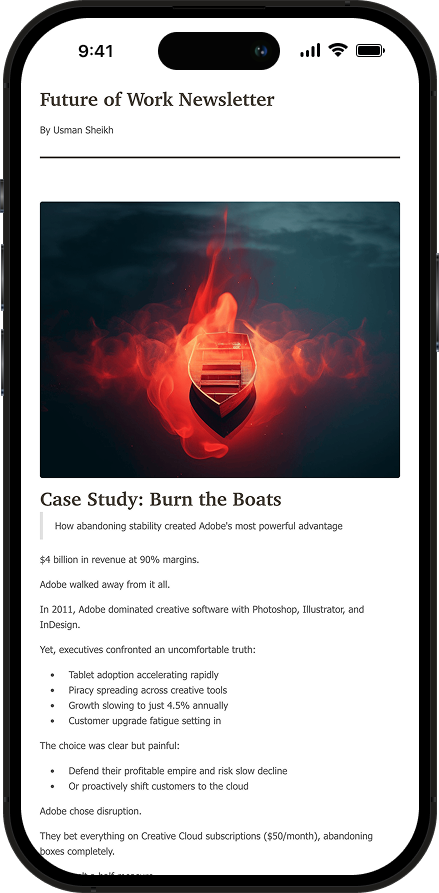30 Apr 2025
Part 3: Deconstructing a Consultant
Trust Builders: How the best consultants navigate politics, adapt to context, and deliver what's needed, not wanted
The analysis was brilliant. The recommendations sound.
Yet nothing changed.
In our final part, we explore how consultants navigate the human dimension which is where the real barriers are.
Parts 1 & 2 explored creating clarity and driving change. This third dimension builds trust across the organization.
The final three functions:
- The Relationship Bridge
→ Connecting stakeholders around shared objectives
→ Facilitating cross-functional understanding
→ Navigating politics to enable decisions
The truth is, organizations are complex human systems with competing agendas and perspectives.
Average consultants rely on data alone. Elite ones recognize that change is fundamentally human.
They bring people together by:
→ Facilitating stakeholder alignment forums
→ Bridging technical and business perspectives
→ Addressing unspoken barriers to progress
→ Building coalitions that sustain momentum
The best consultants know that the executive, middle manager, and frontline employee all see different realities.
Rather than picking sides, they build bridges of understanding between these worlds.
- The Context Translator
→ Adapting best practices to local realities
→ Translating frameworks into specific solutions
→ Accounting for culture and structure
Average consultants apply off-the-shelf frameworks, but generic solutions fail at adapting to the context and ground realities.
Exceptional consultants don't just recommend what worked elsewhere, they adapt successful patterns to fit your unique context.
They achieve this through:
→ Identifying which principles transfer across contexts
→ Adapting to organizational culture and capabilities
→ Knowing when to challenge vs. accept constraints
→ Balancing aspiration with practicality
The difference between good and great consulting lies here: transforming general insights into your organization's distinct advantage.
- The Integrity Anchor
→ Maintaining unwavering commitment to facts
→ Delivering truth regardless of consequences
→ Protecting confidentiality & ensuring ethical conduct
In environments with competing agendas, the consultant must be the voice of integrity, the truth teller and confidant.
Without this foundation, no amount of analytical brilliance or execution skill matters.
This manifests in:
→ Speaking truth to power when others won't
→ Presenting data accurately, even when uncomfortable
→ Navigating politics while maintaining independence
→ Balancing candor with respect
Average consultants tell you what you want to hear.
Elite consultants tell you what you need to know, even when it's uncomfortable.
We covered three dimensions in this series.
They all build upon each other:
→ Clarity without change: useless insights
→ Change without trust: superficial compliance
→ Trust without clarity and change: a comfortable relationship
The deepest value of consulting isn't transactional advice; it's enabling enduring self-reliance.
